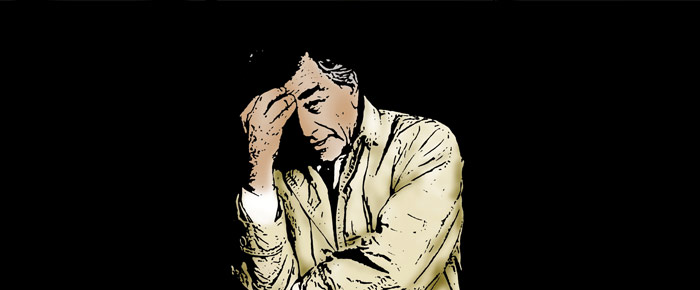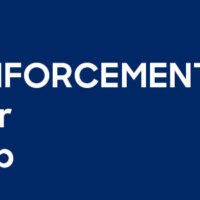
Lieutenant Columbo was a television detective, played by actor Peter Falk. Week after week, he was confronted with complex murder cases committed by cunning felons. In each episode, when criminal and detective were first introduced, the felon ended that encounter with a confident smirk on his or her face. After all, the bad guy was a polished, well dressed, affluent, and condescending individual. On the flip side, Columbo, wearing his rumpled raincoat, appeared disheveled, disorganized and unimpressive. In simple terms, Lieutenant Columbo was underwhelming and seemingly no match for his formidable adversary.
What the bad guys never realized in that initial encounter was that Lieutenant Columbo was extremely meticulous, analytical and persistent. As the episode progressed, he broke down the deception by relentlessly questioning the reasonableness of the felon's story. Lieutenant Columbo allowed the bad guy to believe he or she had the upper hand, when in fact, he was in control. In the end, the worn down criminal was arrested and charged with murder.
What if Lieutenant Columbo investigated fraud instead of homicide?
Think about it, the traits displayed by Lieutenant Columbo in dealing with a murder investigation are very similar to the characteristics required to investigate fraud. Investigating fraud requires imagination.
A good fraudster thrives on deception. The fraudster will be charismatic, portray him or herself as well educated, and being an expert in their field, such as an investment advisor. They will display an air of wealth, although in many instances, the wealth will be derived from fraud at the expense of their victims.
This Week's Episode
In this week's episode, Lieutenant Columbo is matched against Stud Athlete and Connie (Con) Mann. Stud Athlete is in his mid-forties. He enjoyed a prosperous career as a professional football player, who was fortunate enough to play for the New York Jets. Con Mann was Stud's long time friend and business manager. Unbeknownst to anyone, Stud and Con squandered Stud's generous earnings. Providing an air of wealth and significant financial backing, Stud and Con establish "To Good to Be True Investments." They offer two fictitious investment schemes, one involving investing in bridge loans for real estate development and one for investing in gemstones.
Based on his sports popularity and charisma, Stud is able to attract numerous investors in and around the New York area at country clubs and sporting venues. Stud promotes Con as being an investment guru. Together, Stud and Con give the confident guarantee that their gemstone and bridge loan investment vehicles will provide a minimum annual return of 20 percent. One of the tactics the fraudsters use is to leave the impression that they selectively choose investors and you would be lucky to be invited to invest. The purported selectiveness and rate of return are attractive carrots to draw investors.
Our bad guys operated unfettered for ten years. During that timeframe, they took in $100,000,000 in investments. They operated a Ponzi scheme. There were no real investments. Client money primarily went to support their lavish lifestyles. The fraudsters paid early investor dividends and returns based on new investment money. They succeeded in getting many of those early investors to reinvest. Over the years, they convinced most of their clients to continue to invest with them. They built a web of deception through spinning a variety of stories about their investment vehicles. The clients were provided with fictitious investment statements leaving the notion that they earned about 20 percent annually on their investments.
Stud and Con set up an intricate network of business and personal bank accounts. Their banking practices were consistent throughout the years. They never structured deposits. Investment money was deposited into bank accounts from legitimate investor checks and wire transfers. None of the investors ever challenged or disputed deposits. The banks did not detect suspicious activity. To facilitate their scheme, the fraudsters set up a series of shell companies in order to divert investment funds to personal offshore accounts. In addition, Stud and Con drew salaries that in retrospect were very high. They justified the salaries by virtue of the fictitious returns their clients earned. They also siphoned off millions of dollars in withdrawals in the form of petty cash and other seemingly legitimate expenses. The cash and expense payments were laundered offshore through money services businesses in an intricate pattern to serve as part of an exit strategy.
As with most Ponzi schemes, the weight of deception finally caved in after a successful ten year run. Stud and Con were no longer able to sustain the level of investment money necessary to replenish diverted funds and continue to conceal their fraud. One of the banks holding a business account detected a change in deposit activity. The bank escalated their review and identified suspicious activity, triggering the filing of a Suspicious Activity Report (SAR).
Enter Lieutenant Columbo. After receiving the SAR, the Lieutenant went to the bank and obtained the SAR decision file. Once he reviewed the file, Lieutenant Columbo subpoenaed accounts at three banks, in addition to the account at the bank filing the SAR. Financial analysts assisted Lieutenant Columbo in conducting a financial review of the Ponzi scheme's financial activity. In addition, Lieutenant Columbo conducted background investigations on our bad guys. His due diligence immediately focused on their alleged expertise. Columbo identified inconsistencies about Stud and Con's credentials, backgrounds and prior experience.
The good Lieutenant meticulously prepared an investigative plan and interview outlines for our two villains. He understood the theoretical elements of fraud, as well as the specific elements of the criminal activity Stud and Con engaged in. Our hero also understood how to deal with and investigate good fraudsters. He knew that Stud and Con would attempt to gain the upper hand through deception and intimidation. He also knew that his persistence and analysis to determine what was reasonable would ultimately give him the advantage as he develops evidence. Lieutenant Columbo also knew he needed to be prepared to deal with Stud and Con's exit strategy.
As part of his investigative plan, Columbo assessed the financial analysis conducted by his staff. He recognized a pattern of money flows through various accounts into shell companies and ultimately to offshore venues. At this stage, Lieutenant Columbo brought in asset forfeiture specialists to begin the process of conducting an asset forfeiture investigation to parallel his criminal investigation. Next, he conducted surveillances to establish Stud and Con's schedules coming and going from their office in order to determine the most advantageous time to confront them.
One morning, shortly after Stud and Con arrived at their office, Lieutenant Columbo entered. After identifying himself, he advised the partners he was looking into an allegation of fraud involving them. They were surprised but prepared for such an encounter. Stud and Con had choreographed their response for such an eventuality. However, as has been the hallmark when Lieutenant Columbo first approached his subjects, our bad guys viewed the detective with dismissive mindsets. After all, a buffoon like Lieutenant Columbo could not possibly match wits with sophisticated con artists like them. The disrespectful smile in their eyes did not go unnoticed by our hero. He skillfully listened as Stud and Con lied about their activity. Columbo told the partners he had to interview them separately. Con acted infuriated and attempted to intimidate the good Lieutenant. Columbo fumbled through his initial interviews. On his way out, he apologetically asked them to bear with him, he was only doing his job, and this was probably a big misunderstanding. Stud and Con were feeling pretty confident after Lieutenant Columbo left their office. A few minutes later, Columbo walks back in and sheepishly advised he might have to subpoena their bank accounts and commented that he would need their help reviewing the bank statements if he did so. Con told the Lieutenant that would be a waste of his time and wasn't necessary. Lieutenant Columbo said that was probably true.
Likewise, Columbo understood how to recognize and deal with the end game
After the office closed that evening, Lieutenant Columbo returned and searched the trash dumpster behind the building. He found a number of discarded documents including rough draft copies of client investment statements and other incriminating material. A few envelopes recovered were from an offshore location. Columbo researched the venue and determined that the U.S. did not have an extradition treaty with that territory. He theorized this jurisdiction could be part of his subjects' exit strategy.
Subsequently, Lieutenant Columbo scheduled separate meetings with Stud and Con to interview them and review bank statements. They both considered Columbo to be incompetent. As with many fraudsters, their egos had to subtly let the Lieutenant know how superior they were to him. Columbo allowed the fraudsters to think they had the upper hand, all the time knowing, he was actually in control.
Stud and Con did not view Columbo as a threat. They considered him an annoyance. As the contacts continue, our bad guys made a series of culpable statements to the Lieutenant allowing him to build a stronger case against them. Even though they did not consider Lieutenant Columbo to be a threat, Stud and Con realized their fraud had unraveled. As with many fraudsters, they had an exit strategy. The fraudsters believed the time had come to put that exit strategy in motion.
Meanwhile, having developed evidence through financial analysis, interview, documentary review and other methodic investigative steps, Lieutenant Columbo obtained arrest and search warrants. He also knew that the asset forfeiture investigation was progressing. Anticipating that an exit was imminent, Columbo called the fraudsters and requested a meeting at their office the next day. He told them he would have to review their client records. Con advised that the next day was Saturday, and asked if they could meet on Monday instead? Lieutenant Columbo seemed to naively agree. Con chuckled to Stud as he hung up the phone with the perceived inept Lieutenant.
That evening, Columbo stunned our bad guys by showing up at their office with two teams of uniformed police officers. One team was to arrest Stud and Con while the other executed a search warrant. When the investigators entered the office, Stud and Con were in the process of shredding client records. They were immediately arrested and taken to jail. On Con's desk were two sets of airline tickets for the next morning. The destination was the bad guy friendly offshore venue displayed on the envelope Lieutenant Columbo previously found in the trash. The tickets were in fictitious names. They were found along with false identifications for Stud and Con matching the tickets.
Epilog
Score another victory for Lieutenant Columbo. Once again, his meticulous attention to detail, coupled with a persistent investigative style were too much for the bad guys to outwit. Unfortunately, much of the money taken in by the fraudsters was spent for their personal use. This represented a hollow victory for many of the victims. Even though Lieutenant Columbo identified assets for forfeiture, it did not come close to covering the totality of losses suffered by investors.
Lieutenant Columbo overcame a number of investigative challenges because he understood the crime problem he was investigating. He understood how to investigate good fraudsters. Likewise, Columbo understood how to recognize and deal with the end game.
In real life, we are fortunate to have an army of Lieutenant Columbos working in law enforcement. These criminal investigators work tirelessly and frequently achieve Columbo-like success with their investigations. More often than not, they do not receive the recognition deserved for the outstanding work they perform. To all of you Lieutenant Columbos, thanks for perpetuating the legacy of this great, albeit fictional, detective.










